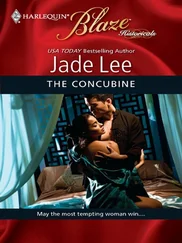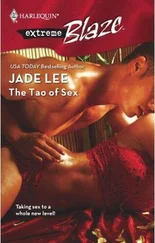The posturing did not, as Hilo had already reminded Tar, mean the men were not a threat, but it did arouse the Pillar’s contempt. In Shotarian, the word barukan traditionally meant both guest and stranger , and was used in reference to an unwanted but unavoidable visitor, such as an inspector from company headquarters or an opinionated mother-in-law. In the past twenty years, however, the word had become synonymous with Keko-Shotarian gangsters. During the foreign occupation of Kekon a generation ago, hundreds of thousands of displaced Kekonese were forcibly sent, or willingly migrated, to Shotar. Their descendants were a marginalized minority in that country, and many turned to illegal jade and lives of crime.
The Kekonese call the barukan half bones and view them with disdain and pity.
The half bone mercenaries employed by Zapunyo escorted Hilo and his men up a wide, curving marble staircase, through a spacious drawing room with a grand piano and tall bookcases, and out a set of open glass double doors onto the balcony overlooking the private lake. Zapunyo sat under a yellow shade at a large cast-top patio table, eating lunch. Three young men dined with him. The one to his right was the eldest, perhaps twenty-five. The other two were seated on the left; one man looked to be twenty, and the youngest was a teenager of about sixteen. They were obviously Zapunyo’s sons.
The barukan leader stopped at the foot of the table. “Pas,” he said, using the respectful honorific common to both Shotar and the Uwiwas. “Your guests have arrived.”
“Much thanks, Iyilo.” The smuggler looked up but did not rise. “Kaul Hiloshudon, Pillar of No Peak. I’ve been looking forward a long time to our meeting in person. Please sit. Have something to eat.” Zapunyo spoke accented but clear Kekonese in a leisurely paced, slightly hoarse voice. He was a short, dark man with crooked front teeth and a stunted look that suggested poor nutrition in childhood. Reliable sources said he was diabetic; his mother had also developed the disease in her forties and died from it. Zapunyo wore a loose yellow silk shirt and a pale blue kerchief tied around his neck; a thin mustache twitched over dry lips. He appeared entirely Uwiwan, like a roughened plantation foreman, but it was well known that Zapunyo was half-Kekonese. His paternal bloodline and small doses of SN1, injected alongside daily insulin, gave him the jade tolerance necessary in his line of work. He wore no jade himself.
There was a single chair and place setting directly across from Zapunyo and his sons. Hilo sat down in it. Tar stepped back to a corner of the patio, and the other four Green Bones positioned themselves watchfully behind the Pillar. Zapunyo’s barukan bodyguards took up similar places behind their boss. Hilo could not help but smile at the comical tableau: The two men faced each other across a table spread with plates of tropical fruit, marinated vegetables, and cured meats, with a dozen heavily armed attendants standing around silently behind them. Zapunyo had arranged this scene as a meeting between kings of equal rank. With his sons arrayed alongside him, the Uwiwan signaled that he was the one who held state here.
A servant came out and filled glasses with citrus-infused water. Hilo did not touch either the water or the food, not because he thought Zapunyo would poison him, but because he did not entirely trust the water sanitation in the Uwiwas. He leaned back in his chair. “Where’s Teije?”
Zapunyo was spooning out the flesh from a quarter wedge of papaya with a small silver spoon. “I suppose enjoying himself by the pool.” He put a mouthful of pink pulp in his mouth, mashed, and swallowed, then dabbed the corner of his mouth with his kerchief. “Your cousin for sure knows how to have a good time. Are you aware of how he got in trouble with the police? First, he walked into a nightclub wearing jade; you can’t do that here. Then he tried to have three women in the same night when the limit is two. He’s very lucky that I heard of his situation. The prisons in this country, they can kill a man with disease before he ever gets a chance to stand in front of a judge. I wouldn’t want such a misfortune to cause bad relations between our countries.”
“You can put him back in that cell for all I care,” said Hilo, “except that I’d feel bad seeing his poor mother cry. All your stalling and mincing of words to get me here in person—you’re obviously under the impression that we have something to discuss. I came because I’m honestly curious to hear what a scavenger like you could possibly have to say to me as Pillar.”
Hilo had thought the smuggler would show some anger, or at least bristle, but Zapunyo merely nodded as if this was exactly what he’d expected. “You Green Bones, you have an old way of thinking,” he said, fixing Hilo with small, beetle black eyes. “I suppose some Kekonese still believe that jade comes from Heaven, that you’re descendants of Jenshu and closest to the gods out of all races. I’ve heard those stories myself. So you cling to jade, you hold on to it so tight, as if it were your very souls that might be snatched. Instead of thinking in an open-minded way about how you can share this wonderful gift you have with the rest of the world.”
“And that’s what you do,” Hilo said sardonically. “Share jade with the world.”
“I’m an entrepreneur,” said Zapunyo. “I see the need and I fill that need. If there is demand for something, and the normal suppliers are not doing a good job, then of course that is where there is a business opportunity. My Kekonese father, he gave nothing to me and my mother, nothing but pain and sorrow, but because of him, I learned to take care of myself. And from my blessed mama I learned to share what little I had with others. So that’s why I wish to talk with you.”
Hilo looked out across the glimmering lake and wondered how much of Zapunyo’s wealth from black market jade dealing it had taken to construct this artificial oasis in the hills, to build, man, and fortify his property, and to pay off all the required officials. Zapunyo called his organization Ti Pasuiga— The Tribe in Uwiwan. He had jade-wearing subordinates and enforced oaths of loyalty from those in his employ. The smuggler might disdain Kekonese ways and beliefs, but that didn’t stop him from taking on the trappings of clan to suit his own purposes. Hilo turned back. “You baited me here to make me a business proposal. So make it.”
Zapunyo speared some pickled green beans and slices of eggplant onto his plate. “My business, like any other, relies on people. But it is hard to find and keep workers when Green Bones are so quick to kill anyone who tries to take even a little jade out of the country. A clan as powerful as No Peak, you have more important things to concern yourselves with. Your territories in Janloon must be defended against enemies; you need men and money to do that—so why spend any energy on things that don’t hurt anyone? There is no reason at all for us to be against one another. I am not a greedy man. I was born poor, and even now, I’m content to take only the scraps from Kekon and even to share what little I make.”
Hilo nodded. “You want me to stop killing your rockfish, in exchange for a cut of the profits you make off the black market jade you smuggle from our shores.”
“You accept tribute from all sorts of businesses, Kaul Hilo. Do you look down upon the money that comes from a brothel as opposed to a grocer? Kekon sells jade to the governments of Espenia and its allies—is their money better than mine?” For the first time, a hint of dangerous affront rose in the smuggler’s slow, dry voice. He turned his head to either side to indicate his sons. The eldest was eating heartily and noisily, glancing up now and then from his plate, but seemingly unconcerned by any of the conversation. His two brothers glowered at Hilo like dogs with their hackles raised. Zapunyo said, “My sons here have much more than I did growing up, a much better life. It is a comfort to me to know that one day they will take over the business, and if anything bad should happen to me, they would remember my enemies. Getting older, I think less and less about myself and more and more about how I want to pass what I gain in this life to my children and my children’s children. Do you have children yet, Kaul-jen?”
Читать дальше












